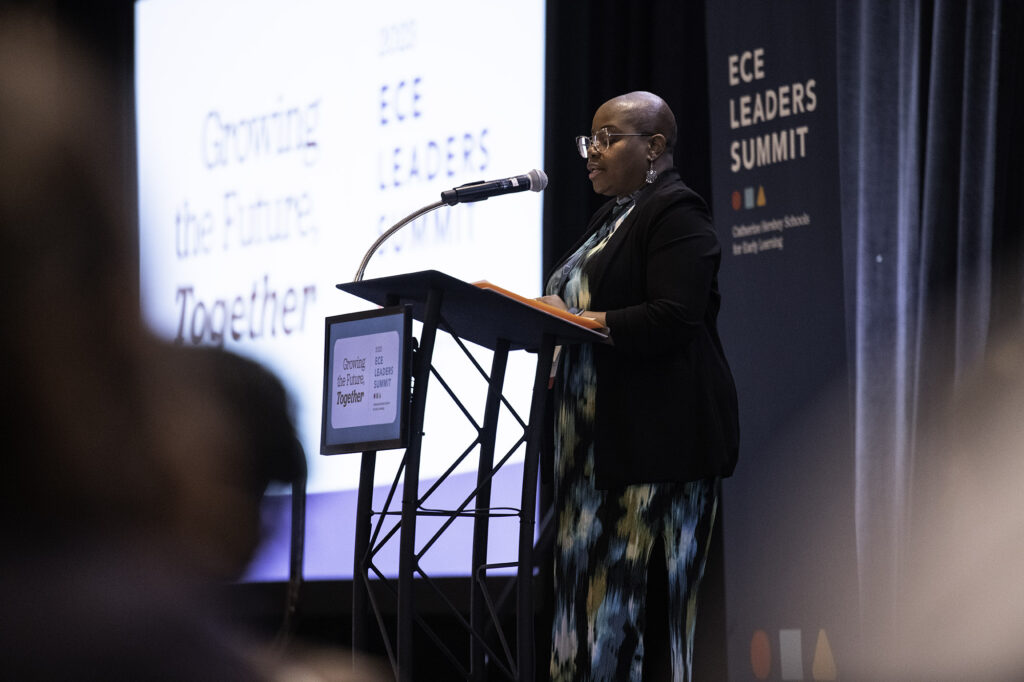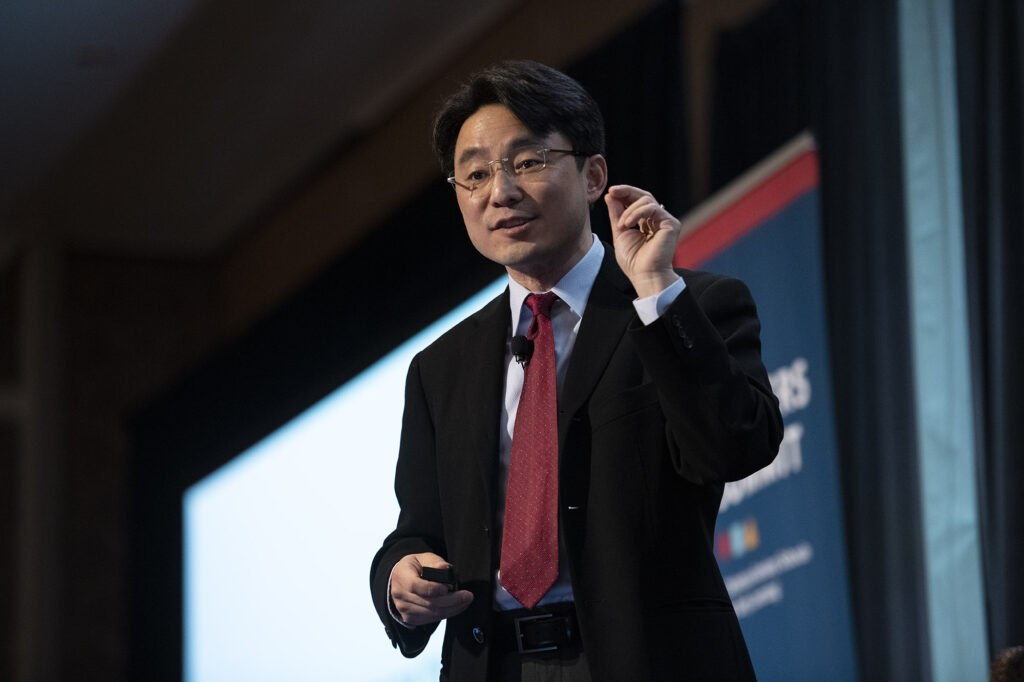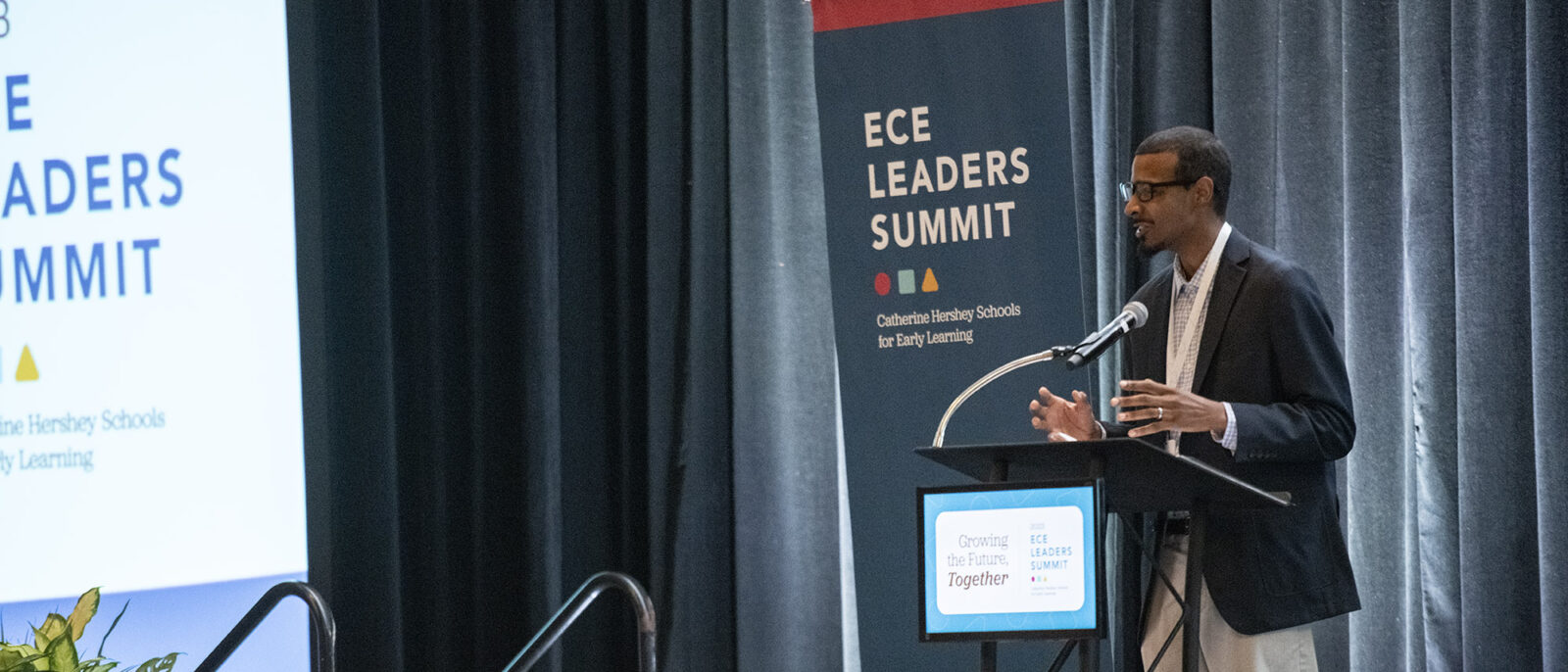PennLive Opinion: Caring for Our Children by Caring for Families and Educators
Originally Published by PennLive on April 12, 2023
By Catherine Hershey Schools for Early Learning Executive Director Senate Alexander
No matter what age we are, 80 years old or 10 years old, we can all remember an experience with an adult – whether good or bad that left a lasting impact. For me, it was my fifth-grade teacher who always believed in my reading ability even when I did not. Her affirmation in my ability has always stuck with me and guided me throughout law school and my career in early childhood education. Even now, I cling to her words of affirmation, as I dedicate my work to providing children with high-quality education and care.
Every interaction with a child is an opportunity to teach and even the smallest interactions can have an enormous impact.
Families and caregivers are children’s first and most important teachers, and the everyday interactions such as reading aloud, or eating together, lay the groundwork for children to grow up healthy, protected, and able to succeed. As a family’s partner, early childhood educators, in turn, do not just focus on academic outcomes, but also provide the positive physical, social, emotional, and intellectual development that is a critical foundation for lifelong growth and learning.
Research shows the first five years of a child’s life are the most impactful for brain development. Many families, though, face significant barriers when searching for high-quality early childhood programs, experiencing long waitlists and high tuition. Challenges are not limited to families, as the teachers and staff often leave the profession, due to feeling underpaid, underappreciated, and are in environments with high child-to-teacher ratios.
The early childhood education community understands that change is not an option but a necessity if we are to truly improve outcomes for children and families. For us, it is our planned six Early Childhood Education Centers that will serve children from low-income families – with all costs covered for those that qualify.
We acknowledge this is no easy feat and early childhood education communities need to come together to expand our joint efforts. That is one reason behind CHS’ inaugural Early Childhood Education (ECE) Leaders Summit held on March 22nd and 23rd in Hershey, Pa. The focus of the Summit, which brought together educators, social workers, community leaders, health care professionals, and administrators from across Central Pennsylvania and beyond, was to discuss innovative approaches in early childhood education. Through the Summit, participants formed new relationships and sparked new conversations in the ECE environment that support whole child communities, unique community needs, and ending the cycle of generational poverty.

From numerous ECE experts across the state and the nation, we heard about the power of collaboration. We were joined at the opening of our conference by Shante’ Brown, Acting Deputy Secretary of Pennsylvania’s Office of Child Development and Early Learning, who set the tone, saying, “We need ongoing partnerships, creative conversations, and solutions throughout the state to make early childhood education a priority.”
The conference amplified what we already know: Building on the strengths of communities, the knowledge of families, and the providers and organizations already engaged in this vital work is critical to our collective success. Partnering in the community in which we operate, as well as statewide, allows us to better serve families.

Dr. Junlei Li, the program chair of the Human Development and Education and the Saul Zaentz Chair in Early Childhood Education at Harvard’s Graduate School of Education reminded everyone that positive childhood experiences mitigate the effects of adverse childhood experiences. Quality ECE programs ‘don’t just remove the bad, they promote the good.’
This underlines the importance of CHS’ Family Success model, where we come alongside families to create a stable foundation by improving their access to resources and skills. For families applying to CHS, we carry out a pre-enrollment process – comprised of two needs-assessment exercises and a pre-admissions home visit – to determine gaps and how CHS can help the family as a whole.
The model is based on understanding that early intervention and family partnerships are crucial to ensure children have the resilience to face any challenge now or in the future, giving them the essential tools to succeed.
The Summit also emphasized that, despite all the barriers, ECE providers must continue to prioritize and implement professional development and coaching for supporting educators.
At CHS we strive to live up to that, providing a paid nearly year-long professional development program that enables staff–including leadership, teachers, and family liaisons–to fully integrate into CHS’ mission and approach, develop, or expand their ECE knowledge, and build strong team dynamics before a Center opens.
Strong relationships between children, their families, and educators is essential, especially in a child’s early years when they are learning how to communicate and connect with peers and adults. Building this experience into programs helps lay the foundation for establishing successful relationships throughout their life.
While the Summit has concluded, we have much work to do. I strongly believe it is possible to achieve what the ECE community is working towards. However, this can only be done if there is unity, collaboration, and support within that community. As CHS prepares to open our first Center in Hershey in the fall, we have been rejuvenated by the professionals and leading experts who came together for the purpose of making a positive impact and bringing awareness to issues that we cannot afford, as a community, and as a nation, to ignore.

